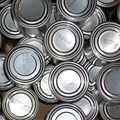South African pet owners are becoming increasingly concerned about their pets' health and dietary needs. In line with this changing awareness, recent regulatory developments have shown a trend towards stricter regulation of pet food packaging.
One of the catalysts for this can be traced back to the widespread recalls of various dog and cat food products in 2007 throughout North America, Europe and South Africa due to melamine and cyanuric acid contamination. The contamination resulted in acute renal failure and death in hundreds of pets, though the true impact is suspected to be much higher.
The marketing and labelling of South African pet foods is governed by regulation 22 of the Regulations relating to Farm Feeds published in terms of the Fertilizers, Farm Feeds, Agricultural Remedies and Stock Remedies Act, 1947. In addition to prescribing the information, which is required to be included on the label, regulation 22(o)(ii) provides that labels
must not mislead the user, in particular by attributing to the pet food effects or properties that it does not possess or by suggesting that it possesses special characteristics when in fact all similar pet foods possess such characteristics...
Failure to comply with these regulations is a criminal offence punishable by a fine or imprisonment.
Industry association code of conduct
The Pet Food Industry Association of South Africa (PFISA) is a non-profit organisation that represents members of the pet food industry and applies an industry code of conduct to ensure that food safety standards align with international levels. Membership is voluntary, and PFISA's current members include numerous well-known pet food brands.
The PFISA code of conduct states that its members' packaging is subject to the standards set by the Advertising Regulatory Board's (ARB) Code of Advertising Practice. The Code of Advertising Practice requires that adverts and labels
should not contain any statement or visual presentation, which directly or by omission, ambiguity or exaggerated claim, is likely to mislead the consumer about the advertised product...
Bernadette Versfeld, Kenan Petersen & Bernadette Lötter 7 Aug 2023 CPA regulations
In addition, the Consumer Protection Act, 2008 (CPA) also finds application regarding marketing standards and potential liability towards consumers. Section 29 prohibits the parties in the supply chain from marketing goods in a manner that is reasonably likely to imply a false or misleading representation, or in a manner that is misleading, fraudulent or deceptive in any way, including in respect of the nature, properties or advantages of the goods.
In terms of section 41, a supplier must also not, by words or conduct, express or imply a false, misleading or deceptive representation concerning a material fact, use exaggeration, innuendo or ambiguity as to a material fact, or fail to correct an apparent misapprehension on the part of a consumer, amounting to a false, misleading or deceptive representation.
A false, misleading or deceptive representation includes falsely state or imply that any goods have ingredients, qualities or benefits that they do not have, or are of a particular standard or quality. If a consumer relies upon a false, misleading or deceptive representation to his/her detriment, the relevant transaction or agreement automatically becomes unfair, unreasonable or unjust for the purposes of CPA section 48.
Liability
Perhaps of most concern to those in the pet food industry, however, is section 61 of the CPA, which imposes joint and several no-fault liability on all parties in the supply chain arising from, among other things, inadequate warnings and instructions provided to consumers, the supply of unsafe goods, and/or product failures, defects and hazards.
Safura Abdool Karim, Makoma Bopape, Rina Swart and Tamryn Frank 16 Nov 2023 The harm for which a supplier can be held liable under this section includes loss of or property damage (which would include pets - though many pet parents would be appalled at the contention that their pets are "property"), and economic loss arising therefrom. Section 61 does, however, provide for limited defences that a particular supplier within the chain may raise to limit or exclude its liability.
Class action lawsuit over labelling
International trends also suggest that producers falling short of the prescribed pet food labelling standards may be at risk of civil liability. In February 2024, Hill's Pet Nutrition, produced by Colgate-Palmolive, became the subject of a class action lawsuit seeking $2.6bn in damages. The lawsuit claimed that Hill's sought to prejudice competitors by falsely claiming that "grain-free" pet food products were linked to dilated cardiomyopathy, a canine disease resulting in an enlarged heart.
Hills is alleged to have published these unsubstantiated claims in its online marketing materials. Investigations conducted by the United States Food and Drug Administration ultimately yielded no evidence of any connection between canine dilated cardiomyopathy and grain-free dog food.
Green claims code
In 2021, the Competition and Markets Authority in the United Kingdom published a "Green claims code" and a "Green Claims Code checklist" to provide guidance for businesses to understand and comply with their existing obligations under consumer protection law when making environmental claims in the UK on product packaging, including pet food products.
Rui Lopes and Jaimin Patel 18 Jan 2024 These include ensuring that the claim is accurate, supported by up-to-date, credible evidence, does not contain incorrect information and does not exaggerate its positive environmental impact. These stipulations seek to discourage "greenwashing" by ensuring that producers, advertisers and retailers are held accountable for claims about a product's positive environmental impact.
SA draft Feeds and Pet Food Bill
This transparency-focused approach is taken a step further in South Africa's draft Feeds and Pet Food Bill, which was published for public comment by the Department of Agriculture in February 2019. Section 30(1)(d) of the Bill imposes stricter penalties to ensure that consumers are not misled or confused through labelling.
It provides that a pet food producer who "packages, labels or advertises any raw material, feed, pet food, animal by-product, feed additive or premixture in a way that is false, misleading or likely to create an erroneous impression regarding its character, quantity, composition, safety, registration or licensing" is guilty of an offence and is liable to a fine or imprisonment. The Bill remains in draft form.
Transparency is vital
Given the increased regulatory scrutiny and consumer awareness, South African pet food producers, advertisers, and retailers must prioritise transparency and accuracy in their packaging and marketing methods.
The new Feeds and Pet Food Bill, which includes stiffer penalties for misrepresenting information, emphasises the significance of conforming to regulatory standards. Industry stakeholders may contribute to the overall well-being of pets and retain consumer confidence by ensuring that pet food products are labelled truthfully and accurately, with no exaggerated or deceptive promises made.
































































